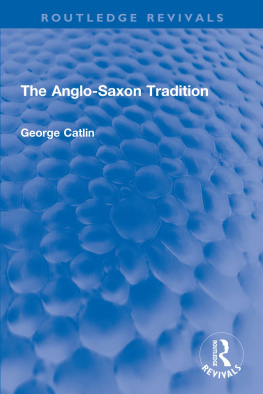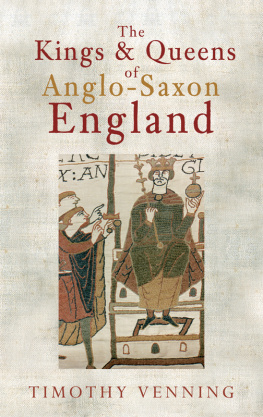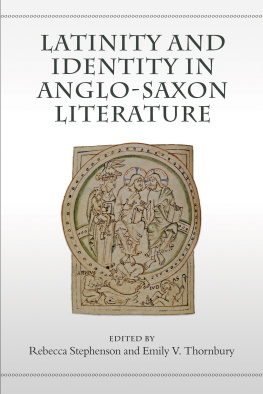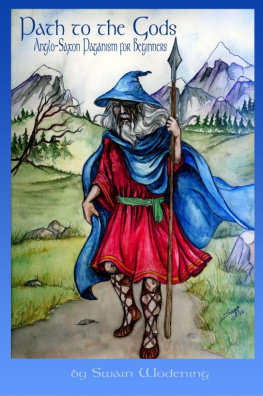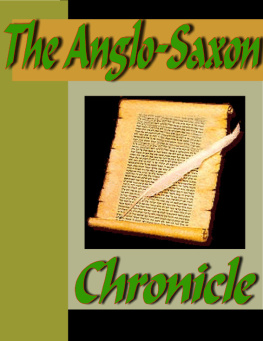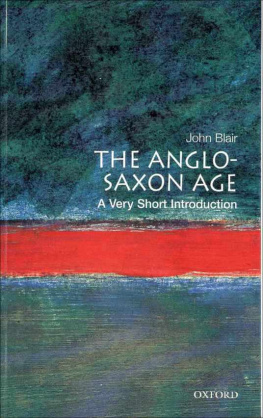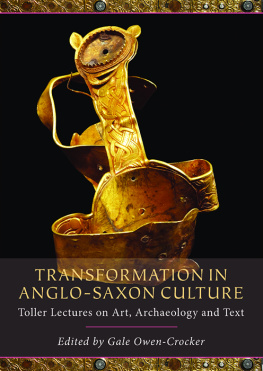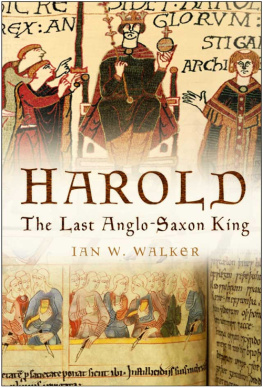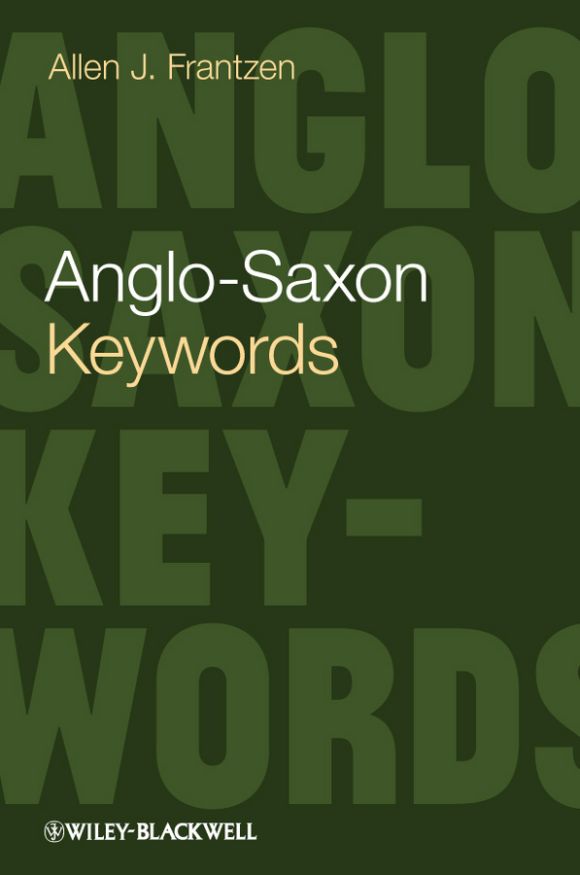Keywords in Literature and Culture
The books in this series present keywords for individual literary periods in an easily accessible reference format. More than a dictionary, each volume is written by a leading scholar and consists of an engaging collection of short essays, which consider the ways in which words both register and explore historical change. Indebted to the work of Raymond Williams, the series identifies and documents keywords as cultural analysis, taking the reader beyond semantic definition to uncover the uncertainties, disagreements, and confrontations evident in differing usages and conflicting connotations.
Published:
Anglo-Saxon Keywords Allen J. Frantzen
Forthcoming:
Middle English Keywords Kellie Robertson
British Literature 1660-1789 Keywords Robert DeMaria Jr.
Romanticism Keywords Frederick Burwick
Modernism Keywords Melba Cuddy-Keane

This edition first published 2012
2012 John Wiley & Sons, Ltd.
Wiley-Blackwell is an imprint of John Wiley & Sons, formed by the merger of Wileys global Scientific, Technical and Medical business with Blackwell Publishing.
Registered Office
John Wiley & Sons, Ltd, The Atrium, Southern Gate, Chichester, West Sussex, PO19 8SQ, UK
Editorial Offices
350 Main Street, Malden, MA 02148-5020, USA
9600 Garsington Road, Oxford, OX4 2DQ, UK
The Atrium, Southern Gate, Chichester, West Sussex, PO19 8SQ, UK
For details of our global editorial offices, for customer services, and for information about how to apply for permission to reuse the copyright material in this book please see our website at www.wiley.com/wiley-blackwell .
The right of Allen J. Frantzen to be identified as the author of this work has been asserted in accordance with the UK Copyright, Designs and Patents Act 1988.
All rights reserved. No part of this publication may be reproduced, stored in a retrieval system, or transmitted, in any form or by any means, electronic, mechanical, photocopying, recording or otherwise, except as permitted by the UK Copyright, Designs and Patents Act 1988, without the prior permission of the publisher.
Wiley also publishes its books in a variety of electronic formats. Some content that appears in print may not be available in electronic books.
Designations used by companies to distinguish their products are often claimed as trademarks. All brand names and product names used in this book are trade names, service marks, trademarks or registered trademarks of their respective owners. The publisher is not associated with any product or vendor mentioned in this book. This publication is designed to provide accurate and authoritative information in regard to the subject matter covered. It is sold on the understanding that the publisher is not engaged in rendering professional services. If professional advice or other expert assistance is required, the services of a competent professional should be sought.
Library of Congress Cataloging-in-Publication Data
Frantzen, Allen J., 1947
Anglo-Saxon keywords / Allen J. Frantzen.
p. cm.
Includes bibliographical references and index.
ISBN 978-0-470-65762-1 (cloth)
1. English languageOld English, ca. 450-1100Glossaries, vocabularies, etc.
2. English languageEtymology. 3. Linguistic change. 4. Historical linguistics. I. Title.
PE279.F73 2012
429dc23
2011047200
A catalogue record for this book is available from the British Library.
Acknowledgments
To those who read drafts of various entries, my warm thanks. They include Robert E. Bjork, Patrick J. Conner, Gareth Davies, Scott DeGregorio, Michael D. C. Drout, Stephen J. Harris, Christina M. Heckman, Wendy Marie Hoofnagle, Christina Lee, Patrick P. ONeill, and Barbara H. Rosenwein. I also thank John Hines, Christopher Loveluck, and Karen Hilund Nielsen for guidance on archaeological matters. Fallon Allison and Jennifer Frey provided attentive and effective editorial assistance. I owe thanks to Ben Thatcher, Sue Leigh, and especially to Emma Bennett at Wiley-Blackwell, and to Glynis Baguley.
Ours is a great age of scholarship and research tools, including the Oxford English Dictionary, the Thesaurus of Old English, and the Middle English Dictionary. For Anglo-Saxonists the standard of excellence has been set by the Dictionary of Old English and the Dictionary of Old English Corpus. My thanks to Antonette di Paolo Healey and the editors for permission to quote from their magnificent work.
Abbreviations
CDOE | Dictionary of Old English Corpus |
DOE | Dictionary of Old English |
OE | Old English |
OEC | OE Canons of Theodore (penitential) |
OED | Oxford English Dictionary |
OEH | Old English Handbook (penitential) |
OEI | OE Introduction to penance (penitential) |
OEP | Old English Penitential (penitential) |
OES | OE Scriftboc (penitential) |
s.v. | sub verbo (Latin): under the word, directs readers to an entry in the DOE or the OED (pl. s.vv.) |
TOE | Thesaurus of Old English |
Anglo-Saxon law codes are conventionally named after the king who issued them, and are numbered in sequence: hence I thelred, II Cnut, and so on. They are listed in Works Cited under the kings name.
An Anglo-Saxon Dictionary, ed. J. Bosworth and T. N. Toller, is cited throughout and should be used in conjunction with Tollers An Anglo-Saxon Dictionary, Supplement, rev. Alistair Campbell.
There are many references to the online edition of the Anglo-Saxon penitentials. Please note that, to access all its functions, you must use Firefox to consult this database. The penitential texts identified above (OEC, OEH, OEI, OEP, OES) are edited and translated at http://www.Anglo-Saxon.net/penance . At that address, choose Texts from the menu at the left, where the titles abbreviated above will appear. Then choose Description and Index . At that link choose Table 2 (the canon finder). Using your operating systems Find command (e.g. Control + F for Windows), search for the number given in the parenthetical reference in Keywords.
Example: To find OEH 55.10.01. Go to the URL. Under Texts , choose OE Handbook (for OEH). Then choose Description and Index and at that link choose Table 2 . Find 55.10.01. Every manuscript version will be listed; click on any one to see the OE text, which will automatically be displayed, and, when the cursor is placed on the canon number, translated. Manuscripts are identified at the head of Table 2 .
All translations from Old and Middle English and Latin are those of the author unless otherwise noted.
Introduction
Keyword is not yet an entry in the Oxford English Dictionary, so I have to make do with key and word. Theres nothing mysterious about the role of word in the title of this book, but key requires some commentary. Far down in the


